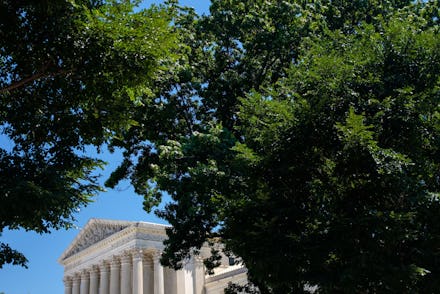The Supreme Court just stripped the EPA of its ability to regulate emissions
The conservative justices somehow concluded Congress did not grant the power to protect air quality, despite Congress literally passing a law called the “Clean Air Act.”

As the world is racing to reduce carbon emissions to stave off the worst effects of climate change, the United States just lost one of its most powerful tools for protecting the planet. The Supreme Court’s conservative majority issued a 6-3 ruling Thursday to significantly roll back the Environmental Protection Agency’s ability to regulate air pollution.
The case, West Virginia v. EPA, saw a challenge brought to the federal government’s ability to regulate emissions from utility companies. Under the Clean Power Plan, passed by the Obama administration, the EPA was charged with regulating emissions produced by power plants that are used to produce electricity. The Supreme Court ruling, written by Chief Justice John Roberts, found the EPA does not have that authority. The decision found that the EPA cannot force electric utilities to transition away from fossil fuel energy and embrace clean energy alternatives like wind and solar. Electricity generation accounts for one-quarter of all greenhouse gas emissions in the country.
The ruling, which somehow concludes that Congress did not grant the EPA the authority to protect air quality despite the body passing a law called the “Clean Air Act,” adds new and crippling restrictions to what the EPA and the federal government can do in their attempts to reduce carbon emissions. The ruling greatly restricts the ability of the EPA set carbon emissions caps, which will make it more difficult for the agency curb tailpipe emissions — which will make it harder to reduce emissions from transportation, the largest source of greenhouse gases in the country. It also prevents the executive branch from considering the economic costs of climate change when considering new projects including oil pipelines, making it harder for the government to reject initiatives that will damage the planet.
Justice Elena Kagan, writing in dissent, wrote, “Today, the court strips the EPA of the power Congress gave it to respond to the most pressing environmental challenge of our time.” She noted that the decision deprives the EPA of its ability to curb emissions. “The court appoints itself — instead of Congress or the expert agency — the decision-maker on climate policy,” Kagan wrote. “I cannot think of many things more frightening."